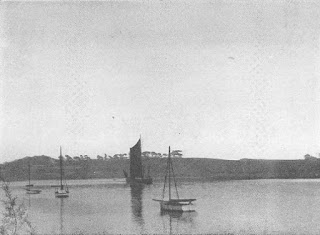Clara in the Mermaid
As I was doing research on Chapter IX, I stumbled on the Mermaid in Hedenham, a 300-year-old former coaching inn in Norfolk, now a shuttered Indian restaurant on the auction block.
On page 261, the narrator states:
On page 261, the narrator states:
"Ditchingham churchyard was very the last stop on my walk through the county of Suffolk. The afternoon was already drawing to a close, and so I decided to return to the main road and continue a short way in the direction of Norwich, to the Mermaid in Hedenham, where the bar would be opening soon. I would be able to phone home from there to be picked up. The route I had to lake led me past Ditchingham Hall, a house built around 1700 in beautiful mauve-coloured brick, the windows of which are fitted with dark green shutters. It was situated well off the main road above a serpentine lake, and encompassed on all sides by extensive parkland. Later, while I was waiting for Clara in the Mermaid, it occurred to me that Ditchingham Park must have been laid out around the time when Chateaubriand was in Suffolk. Estates of this kind, which enabled the ruling elite to imagine themselves surrounded by boundless lands where nothing offended the eye, did not become fashionable until the second half of the eighteenth century."
In fact, next to the Mermaid is a dilapidated shack and a telephone booth where the narrator would call his [wife] Clara to be picked up. What is even more interesting is what was discovered below it in 2011: artifacts from a pre-historic settlement from over 3000 years ago, items from the Bronze or Iron Age, Medieval pottery and cooking implements from the time of the Norman conquest, artifacts from a Roman settlement, a 17th century drinking spout from the King Henry VIII or Queen Elizabeth I.
 |
| The former Mermaid pub, Hedenham. Image: www.brown-co.com |
How Buildings Learn is a book by Stewart Brand, written in the early 90s. They learn indeed--even through the prose of a writer, obsessed with these kinds of finds. The pubs that for many years served the purpose as rest stops on long journeys, now are replaced by service stations. Sebald even lamented about that in another part of the book:
"In North America, too, countless settlements of various kinds, complete with gas stations, motels and shopping malls, move west along the turnpikes, and along that axis affluence and squalor are unfailingly polarized."


Comments
Post a Comment